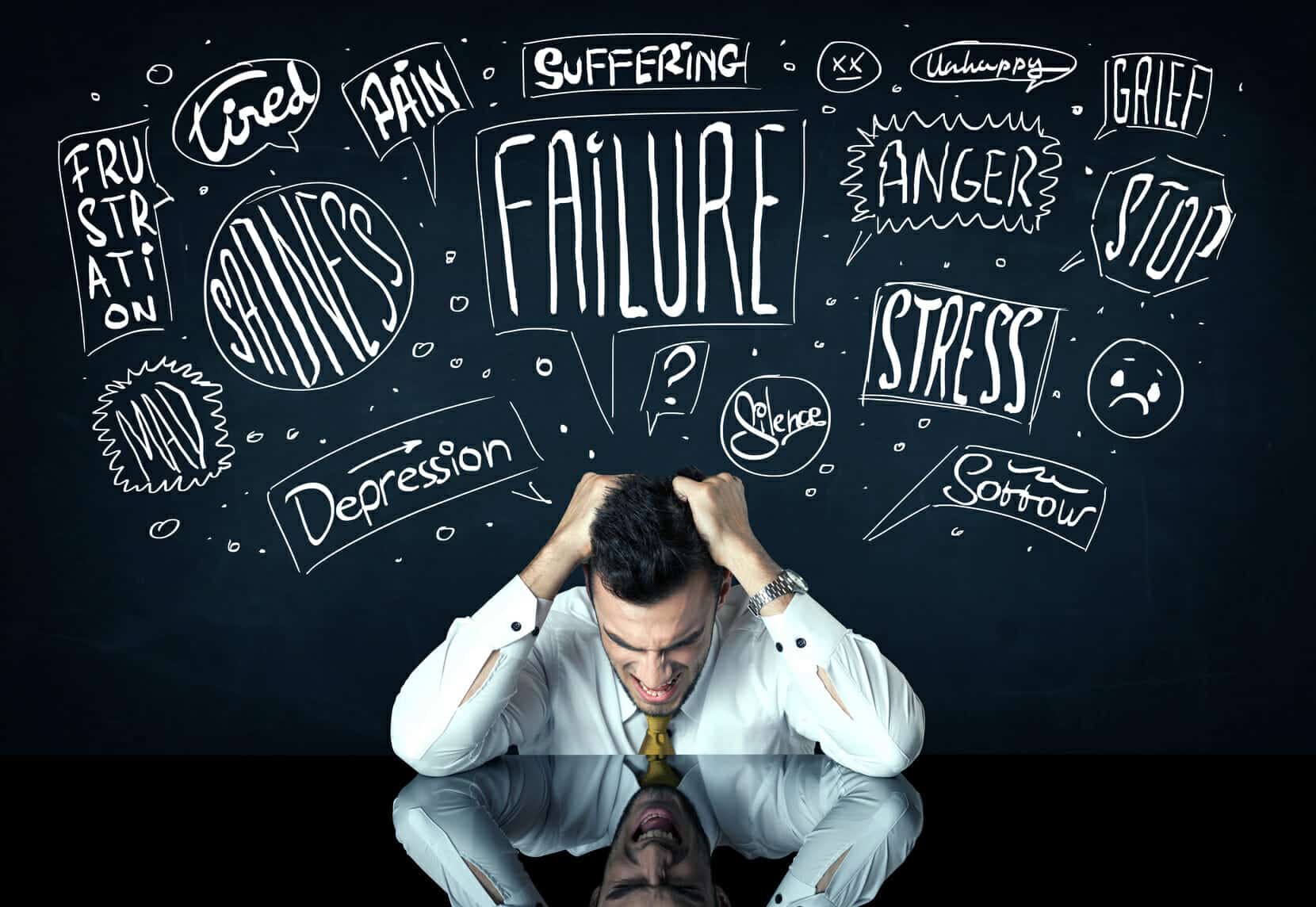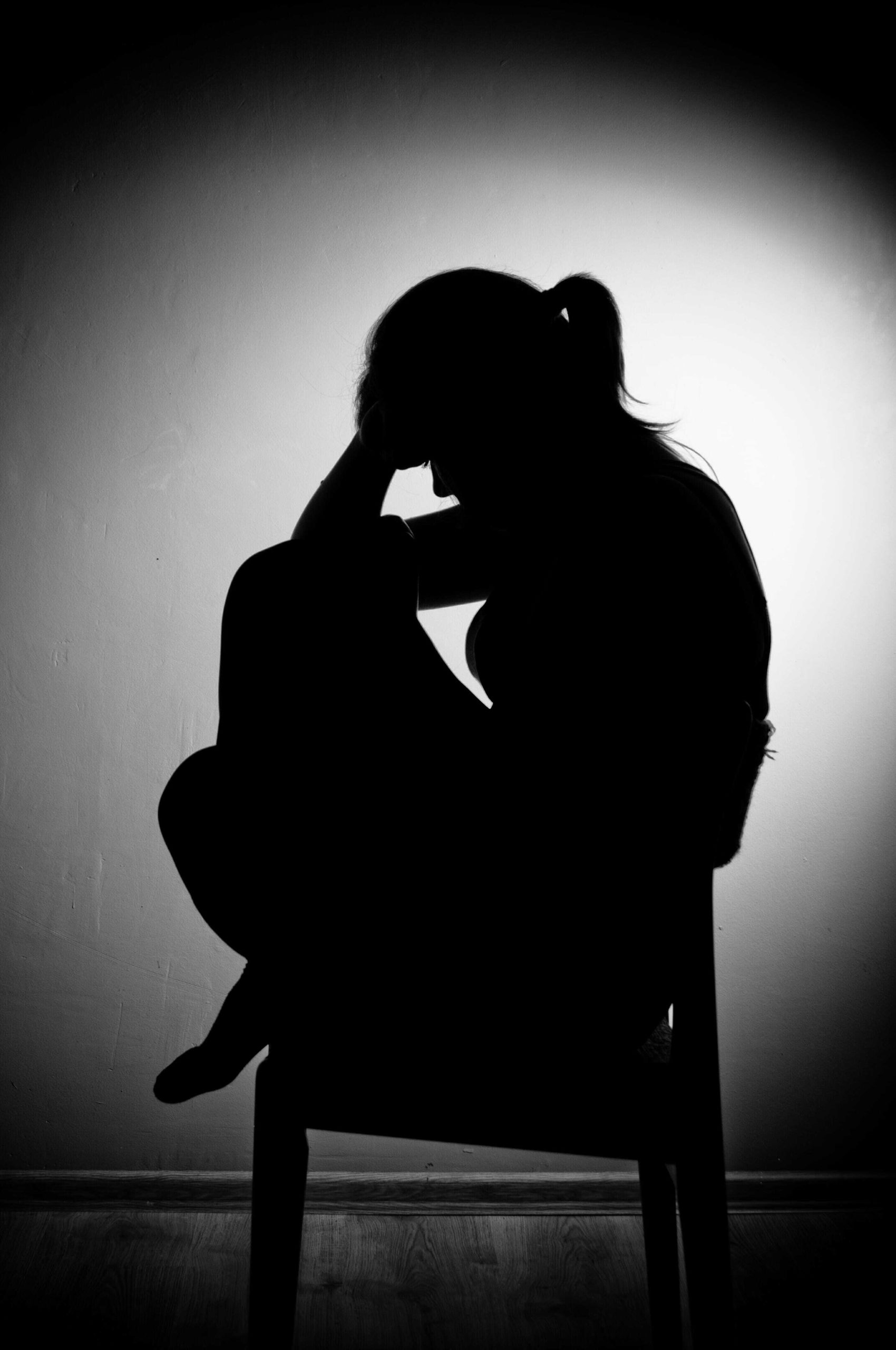Unless you are a therapist, or are talking to a therapist, the subject of “emotional health” – particularly your own emotional health - is not normally something you talk about. It’s very personal, highly sensitive, and mildly taboo.
Yet, when you’re going through a divorce, suddenly your emotional health takes center stage in your life in a way it may not have done before.
You may find yourself getting angry, anxious, and depressed more than you ever did before. Your moods often ride the edges of behavioral extremes, ranging from soul-shattering depression to white hot rage. Your anxiety sometimes borders on paranoia.
Divorce makes your emotional health fragile.
If you didn’t have a tendency to be angry, anxious or depressed before your divorce, you often discover those tendencies while your divorce is in progress.
If you did have those tendencies before your divorce, you’re in even worse shape. Your divorce tends to multiply your fears and anxieties exponentially.
The problem is, when you’re in the grips of any negative emotion – and especially when you’re in the grips of a STRONG negative emotion – thinking clearly becomes impossible.
You spin in an endless loop of “What if’s” in your head. Your mind jumps from idea to idea faster than a neutron bounces around in a nuclear reactor. Making even the simplest decision seems like a herculean task.
Yet, when you’re going through a divorce, thinking clearly is the one thing you MUST do. Otherwise you risk making mistakes that will take you years to recover from.
That’s why getting a handle on your emotions during a divorce needs to be your number one priority.
How?
Here are 10 tips that will help you maintain your emotional health during a divorce.

How to Maintain Your Emotional Health During a Divorce
1. Let Yourself Grieve.
Divorce is a loss – a HUGE loss. It’s actually many losses. It’s the loss of your marriage, your partner, and probably many of your friends. When you get divorced you lose money, time with your kids, and maybe even your home. You lose your identity and your social status. You may lose your business or your job.
You MUST let yourself grieve those losses. You must give yourself the time to grieve those losses. Most importantly, you must give yourself permission to grieve those losses in whatever way works for you.
Maybe you need to be alone so you can cry yourself dry (... which generally takes weeks or months – not hours or days!) Maybe you need to keep yourself busy for a while until you’re able to handle the pain. Or maybe you need to just let yourself be sad.
Whatever it is, do what you need to do to grieve the end of your marriage. Until you do that, your emotional health will suffer.
2. Let Yourself Feel
No one wants to feel pain. It hurts. But NOT letting yourself feel the pain doesn’t make it go away. It just makes it hide.
It hides inside your body and can create all kinds of sicknesses that may show up either while you’re going through your divorce, or even years later. The pain hides inside of your psyche and comes roaring out later when you’re talking about something that has nothing to do with what’s really hurting you. Then everyone looks at you like you’re a complete maniac for losing your temper over something small and insignificant.
As painful as your ugly feelings may be, until you FEEL them, they will not pass. Until you feel them, they will continue to affect you in ways you don’t expect and often don’t realize. That’s why, if you want to restore your emotional equilibrium after a divorce, you absolutely must let yourself feel.
When you feel, you heal.

3. Don’t Fall Down the Rabbit Hole of “Why Me?”
Asking “why me?” is a question without an answer. Not once in recorded history have the heavens opened as the voice of God boomed out a detailed explanation of why something bad happened to someone good.
Asking “why me?” is the wrong question for another reason. It instantly makes you a victim. It focuses you on your pain. Worse yet, it does nothing to help you understand your situation, nor does it help you heal. It just keeps you wallowing in your misery.
Going through a divorce is miserable enough as it is. Going through divorce as a victim can be excruciating.
All you can think about is everything you lost. All you can talk about is how life (or your soon-to-be-ex spouse!) dealt you a bad hand. While that might get you some supportive sympathy for a while, eventually your friends and family will get tired of hearing you whine. Then you’ll be left to be miserable all by yourself.
For your own emotional health and well-being, forget about asking “why me?” Instead, start asking, “what now?”
4. Realize That Denial is Not Your Friend.
Denial is a normal part of the grieving process. Staying in denial, on the other hand, can have disastrous consequences in divorce.
When you refuse to participate in your divorce, you give your spouse the ability to do whatever s/he wants simply because you’re not there to defend yourself. When you continue to believe you can save your marriage, even after your spouse refuses to end his/her affair and won’t drop the divorce, you make the divorce process infinitely more painful.
I’m not saying that you shouldn’t fight for your marriage. You absolutely should. But at some point, if you’re the only one fighting while your spouse keeps trying to move on, it’s time to stop denying that your marriage is over and move on. (And, yes, that hurts like hell!)
The bottom line is that hanging onto denial in any form is not an effective way to deal with divorce. Burying your head in the sand may work for you if you’re an ostrich. But if you’re not, you need to open your eyes and see things as they are.
5. Don’t Make Things Worse.
Engaging in destructive behaviors while you are going through a divorce only makes your already bad situation worse.
Drinking heavily wrecks your health and may affect your ability to get custody of your kids. Diving into the dating scene with a vengeance and/or sleeping with anyone who has a pulse can also reflects negatively on your parenting ability.
Taking revenge on your soon-to-be ex by destroying his/her stuff often ends up costing YOU more. Going on a spending spree thinking your spouse will have to pay the bill can be another expensive mistake. If your spouse makes an issue of your spending, you could end up having your finances frozen. Or you could end up footing the whole bill yourself. Either way, you’re the one who loses.
The bottom line is that acting out of anger or frustration almost always ends up hurting you. Bad behavior never brings about good results.
6. Rein in Your Expectations.
If your expectations for your divorce, or for yourself in your divorce, are unrealistic, you will cause yourself to suffer way more than you otherwise would.
If you expect your divorce to take X amount of time, or cost X amount of money, and it doesn’t (which is almost a given!) you will be disappointed. If you expect your spouse to act a certain way or do a certain thing, and s/he doesn’t act in that way or do that thing, you will be disappointed. Most of all, if you expect the divorce process to be a certain way (for example if you expect it to be “fair”) and your expectations were not realistic, you will be disappointed.
All of that disappointment only adds to the emotional angst you’re already going through. It only makes maintaining your emotional health during a divorce that much more challenging.
Before you take on ANY expectation, then, do a little reality check. Find out whether your expectations are realistic or not. Ask your lawyer or your financial professional or your therapist whether what you are assuming will happen is true.
7. Get Moving!
Exercise is a great healer. It’s well established that exercise reduces anxiety, depression, and other negative moods. It improves your self-esteem and reduces your stress levels.
Moving your body improves your mood almost immediately. That’s because exercising releases endorphins (powerful “feel good” chemicals) in your blood.
Because of those chemicals, it’s biologically impossible to be depressed while you’re doing any kind of vigorous exercise. You will always feel better when your body is moving. Of course, that good feeling won’t necessarily last forever. It certainly won’t make you feel like doing the happy dance all the way through your divorce. But it may last long enough to pull you out of your depression or calm your fears.
The kind of exercise you choose to do doesn’t particularly matter. Running, biking, lifting weights, or even a brisk walk will get your blood flowing and your mind clear. Any kind of exercise will help you regulate your emotions and focus your mind.
8. Keep a Journal.
Having a place where you can express your true thoughts and feelings is invaluable. Sure, nothing beats talking to a good friend or a therapist. But, they’re not always around. (Plus, let’s face it. You can only talk to your therapist so many times a week, and after a while your friends get tired of hearing your tale of woe.) Because of that, having a journal can be a lifesaver.
Believe it or not, journaling has documented benefits. It reduces stress, boosts your mood, and strengthens your emotional functions. All of those can dramatically improve your emotional health.
It doesn’t matter whether you have a fancy, official journal or a simple notebook. It doesn’t matter if you write in full sentences or whether your sentences are grammatically correct. It doesn’t matter whether you write for 10 minutes or 10 hours a day.
What’s important is that you get everything that is clogging up your head and your heart onto a piece of paper. It will make you feel better.
9. Be Kind to Yourself.
So often the person we’re hardest on – even in a divorce – is ourselves. We “coulda, woulda, shoulda” ourselves into feeling like complete dirt. We beat ourselves up for what we did or didn’t do, what we did or didn’t see, the red flags we ignored, or the ones we waived.
When you’re going through a divorce you’re already in enough pain. You don’t need to pile on more yourself!
How do you stop it? Step number one is to become aware of it. Take some time to examine your own inner dialogue. How often are you telling yourself kind things about yourself? How often are you positive? How often are you judging yourself? How often are you negative.
Start listening to the voice in your head. When it tells you that you’re horrible, unlovable, stupid or a failure, do yourself a favor. Thank the voice for sharing. Then purposely focus on something good about yourself. Replace the negative with something positive.
It’ll feel a little weird at first. But if you keep doing it, after a while, it will feel totally natural, and YOU will feel better!

10. Get Help.
No one should go through a divorce alone. You need to be able to vent, yell, scream, laugh, cry, and just share your experience with other people. Your emotional health depends on that.
So, where can you get help?
Step number one is to get a therapist. Even if you have supportive friends and a great family, nothing beats having a therapist by your side while you’re going through a divorce. A good therapist has the knowledge and experience to guide you through your divorce in a way that no non-professional person can.
Another great way to get help is to find a divorce support group. Having other people who understand what you’re going through because they’ve gone through it themselves will make you realize you’re not alone. It also helps when you can share your story with other people, and they can share their stories and advice with you.
Protecting Your Mental and Emotional Health During and After Divorce
Divorce is a journey.
Once you start viewing it as a journey and not simply as a destination, you’ll start to understand how important the process is.
You can go through that process with grace, or you can get dragged through it kicking and screaming. Either way, you’ll get to the end someday. But the condition you’ll find yourself once you get there will be dramatically different.
If you’d like to make it to the end of your divorce in the best possible physical and mental condition, then paying attention to your emotional health along the way matters.
That’s not to say that you have to (or will be able to!) get a handle on your negative emotions in a day. The human psyche doesn’t work that way.
But if you take the steps outlined above you’ll be able to make it through your divorce in a much healthier way. Then, once your divorce is over, you’ll truly be ready to start a new life. (Yes. You can!)
________
This post was originally published in March, 2015 and updated on March 31, 2021.



Do you know a fivorce ciach in Phoenix?
No, I don’t. I’m sorry.
I am going through my second divorce – a marriage of 20 years. What fears me the most is loneliness and knowing what to do with my time. I am seeing a psychiatrist and a therapist. This is awful beyond comprehension.
I can hear your pain. I know what you’re going through hurts like the devil. All I can say is, hang in there! Things will get better, but unfortunately, it will take time.
Karen